13 start with M start with M
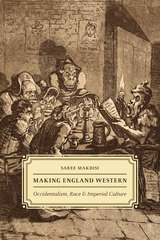
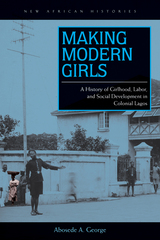
Winner of the 2015 Aidoo-Snyder Book Prize for outstanding book on African women's experiences. (African Studies Association)
Honorable Mention, New York African Studies Association Book Prize
In Making Modern Girls, Abosede A. George examines the influence of African social reformers and the developmentalist colonial state on the practice and ideology of girlhood as well as its intersection with child labor in Lagos, Nigeria. It draws from gender studies, generational studies, labor history, and urban history to shed new light on the complex workings of African cities from the turn of the twentieth century through the nationalist era of the 1950s.
The two major schemes at the center of this study were the modernization project of elite Lagosian women and the salvationist project of British social workers. By approaching children and youth, specifically girl hawkers, as social actors and examining the ways in which local and colonial reformers worked upon young people, the book offers a critical new perspective on the uses of African children for the production and legitimization of national and international social development initiatives.
Making Modern Girls demonstrates how oral sources can be used to uncover the social history of informal or undocumented urban workers and to track transformations in practices of childhood over the course of decades. George revises conventional accounts of the history of development work in Africa by drawing close attention to the social welfare initiatives of late colonialism and by highlighting the roles that African women reformers played in promoting sociocultural changes within their own societies.
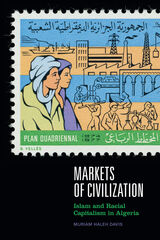
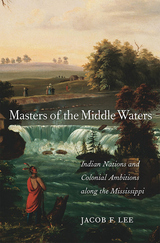
A riveting account of the conquest of the vast American heartland that offers a vital reconsideration of the relationship between Native Americans and European colonists, and the pivotal role of the mighty Mississippi.
America’s waterways were once the superhighways of travel and communication. Cutting a central line across the landscape, with tributaries connecting the South to the Great Plains and the Great Lakes, the Mississippi River meant wealth, knowledge, and power for those who could master it. In this ambitious and elegantly written account of the conquest of the West, Jacob Lee offers a new understanding of early America based on the long history of warfare and resistance in the Mississippi River valley.
Lee traces the Native kinship ties that determined which nations rose and fell in the period before the Illinois became dominant. With a complex network of allies stretching from Lake Superior to Arkansas, the Illinois were at the height of their power in 1673 when the first French explorers—fur trader Louis Jolliet and Jesuit priest Jacques Marquette—made their way down the Mississippi. Over the next century, a succession of European empires claimed parts of the midcontinent, but they all faced the challenge of navigating Native alliances and social structures that had existed for centuries. When American settlers claimed the region in the early nineteenth century, they overturned 150 years of interaction between Indians and Europeans.
Masters of the Middle Waters shows that the Mississippi and its tributaries were never simply a backdrop to unfolding events. We cannot understand the trajectory of early America without taking into account the vast heartland and its waterways, which advanced and thwarted the aspirations of Native nations, European imperialists, and American settlers alike.
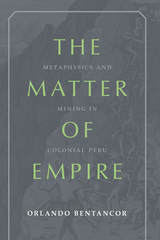
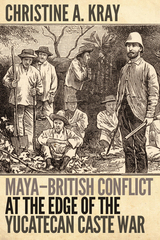
Official British declarations of neutrality in the Caste War were confounded by a variety of political and economic factors, including competing land claims befuddled by a tangled set of treaties, mahogany extraction by British companies in contested territories, Maya rent demands, British trade in munitions to different groups of Maya combatants, and a labor system reliant on debt servitude. All these factors contributed to uneasy alliances and opportunistic crossings of imagined geopolitical borders in both directions, ultimately leading to a new military conflict in the western and northern regions of the territory claimed by Britain. What frequently began as hyper-local disputes spun out into international affairs as actors called upon more powerful groups for assistance. Evading reductionism, this work traces the decisions and actions of key figures as they maneuvered through the miasma of violence, abuse, deception, fear, flight, and glimpses of freedom.
Positioning the historiographic and ethnographic gaze on the English side without adopting the colonialist narratives and objectives found in English repositories, Maya-British Conflict at the Edge of the Yucatecan Caste War is an important and original contribution to a neglected area of study. It will appeal to students, scholars, and general readers interested in anthropology, Latin American cultures and history, Central American history, British imperialism, Indigenous rights, political anthropology, and colonialism and culture.
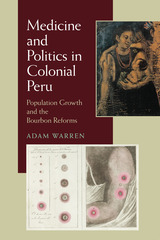
By the end of the eighteenth century, Peru had witnessed the decline of its once-thriving silver industry, and it had barely begun to recover from massive population losses due to smallpox and other diseases. At the time, it was widely believed that economic salvation was contingent upon increasing the labor force and maintaining as many healthy workers as possible. In Medicine and Politics in Colonial Peru,Adam Warrenpresents a groundbreaking study of the primacy placed on medical care to generate population growth during this era.
The Bourbon reforms of the eighteenth century shaped many of the political, economic, and social interests of Spain and its colonies. In Peru, local elites saw the reforms as an opportunity to positively transform society and its conceptions of medicine and medical institutions in the name of the Crown. Creole physicians in particular, took advantage of Bourbon reforms to wrest control of medical treatment away from the Catholic Church, establish their own medical expertise, and create a new, secular medical culture. They asserted their new influence by treating smallpox and leprosy, by reforming medical education, and by introducing hygienic routines into local funeral rites, among other practices.
Later, during the early years of independence, government officials began to usurp the power of physicians and shifted control of medical care back to the church. Creole doctors, without the support of the empire, lost much of their influence, and medical reforms ground to a halt. As Warren’s study reveals, despite falling in and out of political favor, Bourbon reforms and creole physicians were instrumental to the founding of modern medicine in Peru, and their influence can still be felt today.
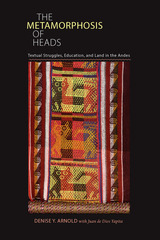
Since the days of the Spanish Conquest, the indigenous populations of Andean Bolivia have struggled to preserve their textile-based writings. This struggle continues today, both in schools and within the larger culture. The Metamorphosis of Heads explores the history and cultural significance of Andean textile writings--weavings and kipus (knotted cords), and their extreme contrasts in form and production from European alphabet-based texts. Denise Arnold examines the subjugation of native texts in favor of European ones through the imposition of homogenized curricula by the Educational Reform Law. As Arnold reveals, this struggle over language and education directly correlates to long-standing conflicts for land ownership and power in the region, since the majority of the more affluent urban population is Spanish speaking, while indigenous languages are spoken primarily among the rural poor. <I>The Metamorphosis of Heads</I> acknowledges the vital importance of contemporary efforts to maintain Andean history and cultural heritage in schools, and shows how indigenous Andean populations have incorporated elements of Western textual practices into their own textual activities.
Based on extensive fieldwork over two decades, and historical, anthropological, and ethnographic research, Denise Arnold assembles an original and richly diverse interdisciplinary study. The textual theory she proposes has wider ramifications for studies of Latin America in general, while recognizing the specifically regional practices of indigenous struggles in the face of nation building and economic globalization.
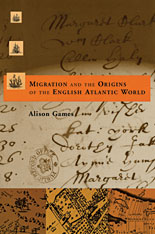
England's seventeenth-century colonial empire in North America and the Caribbean was created by migration. The quickening pace of this essential migration is captured in the London port register of 1635, the largest extant port register for any single year in the colonial period and unique in its record of migration to America and to the European continent. Alison Games analyzes the 7,500 people who traveled from London in that year, recreating individual careers, exploring colonial societies at a time of emerging viability, and delineating a world sustained and defined by migration.
The colonial travelers were bound for the major regions of English settlement--New England, the Chesapeake, the West Indies, and Bermuda--and included ministers, governors, soldiers, planters, merchants, and members of some major colonial dynasties--Winthrops, Saltonstalls, and Eliots. Many of these passengers were indentured servants. Games shows that however much they tried, the travelers from London were unable to recreate England in their overseas outposts. They dwelled in chaotic, precarious, and hybrid societies where New World exigencies overpowered the force of custom. Patterns of repeat and return migration cemented these inchoate colonial outposts into a larger Atlantic community. Together, the migrants' stories offer a new social history of the seventeenth century. For the origins and integration of the English Atlantic world, Games illustrates the primary importance of the first half of the seventeenth century.
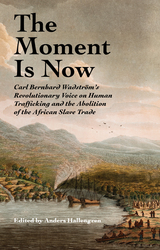
The Moment Is Now includes the proceedings of The International Carl Bernhard Wadström Conference on Human Rights and the Abolition of Slavery, which was held in London on June 2–4, 2015. Accessing source materials in different languages that were previously scattered throughout English, French, and Swedish archives, the scholars involved have been able to successfully investigate Wadström’s work and influence in such diverse areas as economics, science, abolitionism, travel writing, African colonial history, Swedenborgianism, philanthropy, utopianism, and human rights.
As its title makes clear, this book not only offers a glimpse into a significant moment in history but also serves as a call to action and a primer to be used in the here and now—a guide from which we can learn how to deal with those horrific forms of human oppression that Wadström and others like him sought to bring to an end.
The Moment Is Now is the twenty-second installment in the Swedenborg Studies scholarly series.
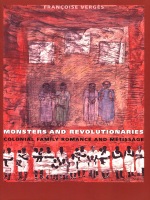
Originally settled by sugar plantation owners and their Indian and African slaves following a seventeenth-century French colonial decree, Réunion abolished slavery in 1848. Because plantation owners continued to import workers from India, Africa, Asia, and Madagascar, the island was defined as a place based on mixed heritages, or métissage. Vergès reads the relationship between France and the residents of Réunion as a family romance: France is the seemingly protective mother, La Mère-Patrie, while the people of Réunion are seen and see themselves as France’s children. Arguing that the central dynamic in the colonial family romance is that of debt and dependence, Verges explains how the republican ideals of the French Revolution and the Enlightenment are seen as gifts to Réunion that can never be repaid. This dynamic is complicated by the presence of métissage, a source of anxiety to the colonizer in its refutation of the “purity” of racial bloodlines. For Vergès, the island’s history of slavery is the key to understanding métissage, the politics of assimilation, constructions of masculinity, and emancipatory discourses on Réunion.
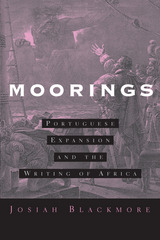
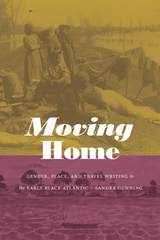
READERS
Browse our collection.
PUBLISHERS
See BiblioVault's publisher services.
STUDENT SERVICES
Files for college accessibility offices.
UChicago Accessibility Resources
home | accessibility | search | about | contact us
BiblioVault ® 2001 - 2024
The University of Chicago Press









